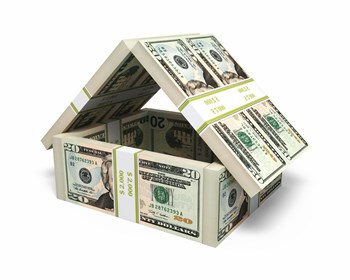
Taxes from the sales of multimillion-dollar homes are going up, thanks to the folks up in Albany.
As part of New York State’s 2020 budget, a change has been enacted to New York State’s ‘mansion tax.” Originally enacted in 1989 by then-Gov. Mario Cuomo, the ‘mansion tax’ was a tax on statewide sales of homes of $1 million or more. Its original intent was to bolster New York State’s budget during an economic recession.
The revision on the tax for fiscal year 2020, which was approved by the State Legislature and Gov. Andrew Cuomo, will apply only to sales of $1 million and over in New York City. Proceeds from it will be used to fund improvements for the city’s perpetually deteriorating subway system.
Let’s look at how the ’mansion tax’ works.
The Changes
While the statewide tax will remain at 1 percent, the tax on New York City property will increase with purchases of $2 million or more, and rise to a total of 3.9 percent on transactions of $25 million and over.
The new rates and applicable sales prices are as follows:
- $1,000,000-$1,999,999 1.00%
- $2,000,000-$2,999,999 1.25%
- $3,000,000-$4,999,999 1.50%
- $5,000,000-$9,999,999 2.25%
- $10,000,000-$14,999,000 3.25%
- $15,000,000-$19,999,999 3.50%
- $20,000,000-$24,999,999 3.75%
- $25,000,000 or more 3.90%
The Alternative
While no one likes new or higher taxes, the general reaction from real estate professionals--particularly brokers active in the luxury market--is a moderate sigh of relief compared to an earlier proposal.
The alternative plan called for a tax on pied-a-terres. A pied-a-terre, literally a “foot in the earth,” is a second home owned by wealthy individuals in urban areas. These can be small but serviceable apartments for people who live in the suburbs but work in the city, or simply in-town residences for part time use. In recent years the term has also become common usage for apartment units held by investors, often from overseas, which are rarely if ever used.
The proposed tax on pied-a-terres, would have been an annual tax, rather than the one-time so-called ‘mansion tax.’ Real estate professionals were particularly opposed to a tax that would become an annual expense for owners, fearing it would cause a dampening of the luxury market that is already under assault by recent changes to the federal tax code.
Apparently, the nail in the coffin of the tax on pieds-a terre occurred when New York City tax officials indicated that they didn’t have the resources to value properties or determine if the owners of the units lived there or were absent--one of the qualifying factors for the levying of the tax on specific units.
What the Real Estate Agents Say
“The new tax might affect sales,” Nick Rafello, a broker with Compass, says, “but it’s too new, we don’t know yet. Any time you add costs it’s problematic. The effect might be felt more at the higher level, but when the buyer is at that level, it might not matter.”
Meanwhile, Matthew Cohen of real estate firm Halstead offers this insight. “I'm finding it is not a dollar thing for high-end clients, it's a principle thing. They are not as happy with New York as they used to be because of these tax increases.
“I’m dealing with two examples of this right now," he continues. "With one, we have a contract out for around $5 million with a closing date the last week of June in order to beat the July 1st deadline [when New York City’s fiscal year begins]. The other wants to unload some of his investment properties in the city because of the transfer and mansion tax changes.”
While the ultimate ramification of the new tax is unknown, one known factor is certain: Increasing costs is never a positive for any market.
AJ Sidransky is a staff writer at The Cooperator, and a published novelist.






Leave a Comment